Why Five of Hollywood's Great Auteurs Went to War
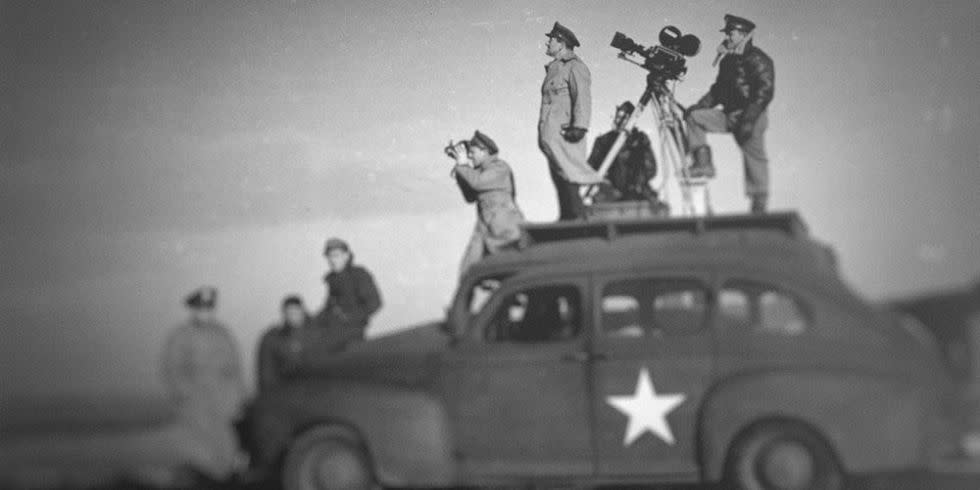
In 2014, Mark Harris published his second book on the history of the motion picture industry. His first book, the celebrated Pictures at a Revolution, had chronicled the birth of the New Hollywood by examining the five films from 1967 nominated for Best Picture at the Academy Awards. For his second project, Five Came Back, Harris turned his eye further back in time to another fulcrum event-this time not just for Hollywood, but for the world at large. At the end of 1941, five Hollywood directors heard the call to arms after Pearl Harbor, and enlisted in the armed services. Their mission: Make films to win the war. The story of those five directors has now been turned into a three-part documentary for Netflix
The documentary Five Came Back enlists the help of five living directors, in the form of talking head interviews, to guide viewers through the complex, interweaving story of American propaganda filmmaking during WWII. Each director acts as a surrogate for one of those directors who went off to war: Steven Spielberg for William Wyler, Paul Greengrass for John Ford, Francis Ford Coppola for John Huston, Guillermo del Toro for Frank Capra, and Lawrence Kasdan for George Stevens.
With those guides in place, and Meryl Streep's voice narrating the whole thing, Mark Harris and director Laurent Bouzereau take viewers on a journey with those five men who left everything behind, served their country, and were forever changed by the experience. Harris tells Esquire.com about adapting his book for a documentary film, finding a home at Netflix, and how contemporary filmmakers can learn from these five auteurs.
For Harris, who wrote the script for Five Came Back based on his own book, the process of adapting to a new medium presented unique challenges.
Mark Harris: One thing that we decided right from the beginning was that we wanted to preserve the interweaving structure of the book rather than somehow subdivide this into five tidy segments, one on each director, which would require us going through the same events of the war again and again. I don't see it as five stories. I see it as one story with five protagonists who knew each other, who worked together, who were competitive, who were collegial, who were sometimes not collegial. But it is all one big story, and I think part of the fun of it is seeing in unexpected moments one or two of them bump into each other or work together.
But you know, preserving that idea is one thing; to preserve the exact structure of the book would've been crazy, because it's a 500-page book and to jump back and forth between plot lines in a documentary as many times as I do in the book I think would've been really maddening for people. And also each segment would've been under a minute. No question this is a book that would take me 20 hours to read to you; we're telling you the story in like three hours and ten minutes. So for instance, the story of William Wyler and Memphis Belle, which probably is six or seven separate episodes in the book, is like one or two separate episodes in the film. The more we worked on it, the n that felt to me.
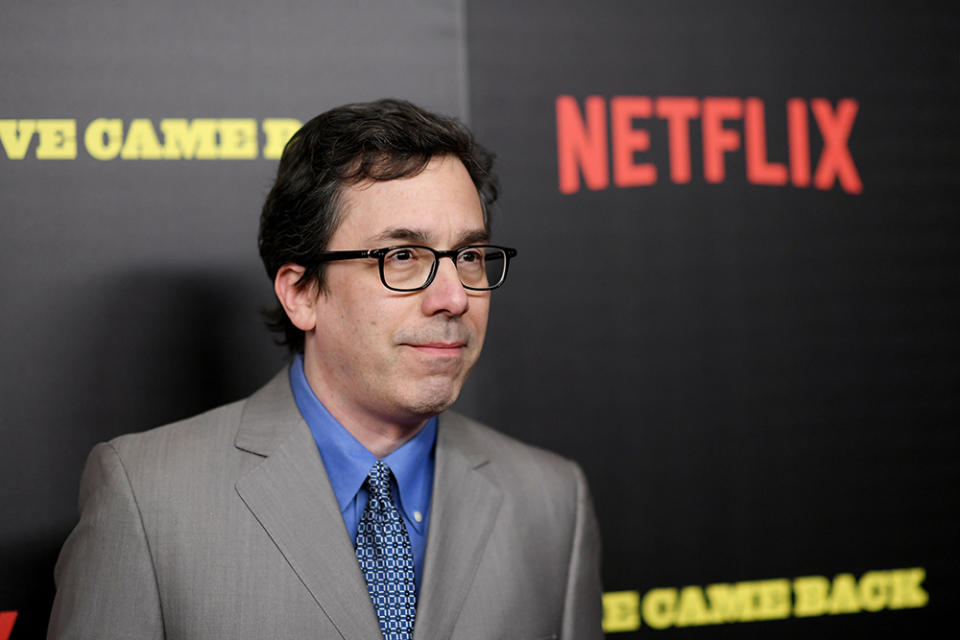
Netflix was the perfect home for the documentary series, focused entirely on the quality of the content, and setting only one hard and fast rule.
I can't say what they were like to work with compared to a cable channel or a network, but they were great, really. I know that's a boring answer, but you know, right from the very beginning what Netflix was interested in was… I mean literally the only sort of rule they laid down at the top was the one we all know, which was all the episodes have to be done at the same time. Netflix's primary interest was: What is this story? What's the best way to tell this story. How many episodes should it be? What feels right? What's the best way to go at this? Is this narrative coming through clearly? Are these men coming through clearly-who they were? And sometimes it was as specific as: Does this moment, or does this piece of commentary, or this cut from one shot to another tell the story as effectively as we want it to? It's all content-focused.
It was the documentary's director, Laurent Bouzereau, who came up with the idea to have modern directors act as surrogates for the five central characters of the series.
We didn't call them surrogate directors, but I really love that phrase because that's exactly what they are. That was really in large part Laurent's initiative. We talked about a lot of different approaches, literally from interviewing no one, to interviewing a ton of people, from directors, to war historians to cultural critics, to film historians, to me-which I did not want, and I think it's really good that I'm not in this documentary. As we got deeper into work on it, Laurent really expressed a belief that this could work, and it was obviously a big gamble because this wasn't a situation where we could say, can you just come in and sit down for a couple of minutes and talk about what a great guy John Ford was? They had many functions. They take us through story at some points, but they're also directors talking about directors in a way that only directors can. So it's this kind of act of professional empathy that crosses several decades. And who knew if that would work?
Harris didn't want to whitewash the fact that the documentary is about five great directors filming military propaganda.
I think we are right to flinch at the word "propaganda." It can mean many things, and certainly in the context of what these men were doing in the war it meant more than one thing. Some of the propaganda was toward the effort of saying, "We're going to win," but that's not all it was. There was propaganda intended to say, "This is going to take great sacrifice." There was propaganda whose intent was to say, "The enemy is very dangerous." There were times when one message in a way conflicted with another. How much of the brutality of war do you show to convey one thing before you start undercutting another? But overall I think the scheme of having filmmakers suddenly serve a military or quasi-governmental purpose is one that should be approached with concern and skepticism.
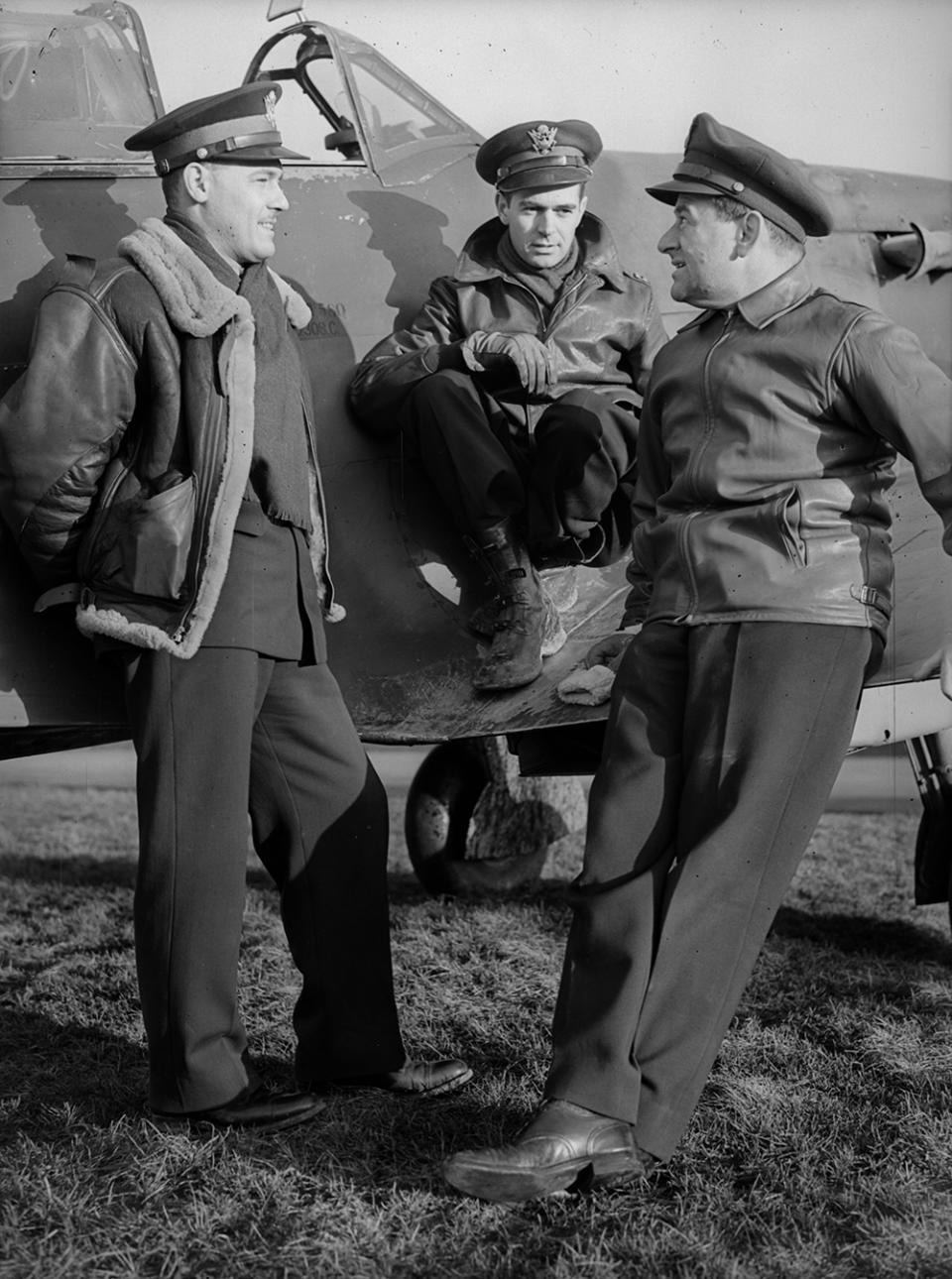
Despite the work being ethically problematic, having American filmmakers capture the war gave us all a better understanding of the conflict.
If you ask me at the end of this, do I think they were right to do it, do I think the good outweighed the harm? Yes, I absolutely do. I think collectively we have a better understanding of what war looked like because of what these men did. I think that George Stevens bringing his camera into Dachau was a great good. As many people as now, still 70 years later, are Holocaust deniers, their numbers would be greater if that footage didn't exist. So I think what they did was good, but I didn't want the book or the documentary to shy away from the fact that many of them strayed into really ethically problematic areas, and that that was probably an inevitable result of the project itself.
You know, I'm really glad that we have the footage from The Negro Soldier and Know Your Enemy: Japan in the doc because I wrote about those in the book, but it's important for me that people be able to see for themselves that the army had real problems, and America had real problems, and those [became complex] by propaganda. They didn't get erased.
Harris had to pause after Trump was elected to make sure the film wasn't glossing over some of its more difficult subjects.
We were working on it during the election and after the election, and we did not have any moment where we said, "Hey, now that this is landing in the Trump universe, let's put this in, or let's make this point a little hard." In the couple months after the election, we did stop at one point and take a breath and say, "Let's just look at this and make sure that we are treating questions of propaganda and accuracy and news and government influence as responsibly as we should be." And I think we concluded that we were. Without wanting to retrofit this documentary for the time it was born into, we felt like the best thing we could was tell the story accurately rather than draw crayon lines to contemporary parallels.
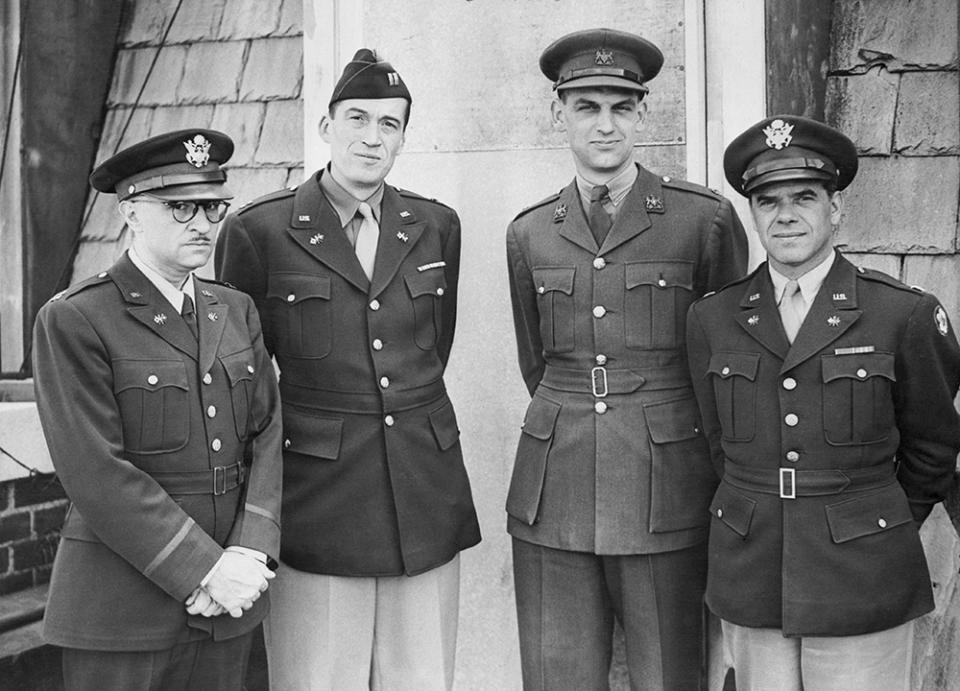
There are some important parallels between the story of Five Came Back and what we're dealing with in the Trump era.
One thing that really interesting me-this goes back to when I was working on the book-I kept expecting to find in the archives a piece of evidence that these filmmakers wanted to tell the truth and there were times that the government or the war department said, "No, you have to stage this, or you have to fake this in order to help the cause." And I didn't find it. The documentary depicts some very, very troubling filmmaking episodes-San Pietro, Tunisian Victory, George Stevens being asked by Capra to fake the liberation of a North African village that had already been liberated-but in every case it was filmmakers taking that initiative because they thought they were helping the cause. It was not the government telling them to.
If people want to see a warning sign about 2017, you could say that it's "beware of internalizing the authoritarian." We have more to fear from a news enterprise that decides that it wants to give the president what the president wants to hear, for instance-not to name names-than we do from the government telling news organizations what they have to do. If there's a contemporary parallel, that's one.
George Stevens had the surrender of occupation forces in Paris restaged outdoors to capture the event in daylight, but according to Harris this was perfectly in keeping with his intent to document the latter part of the war as accurately as possible.
I think that's a really interesting example, because yes, the surrender happened, and then Stevens said, "No, we're going to do the surrender out here because the light's better," and he did it again. That sounds sort of terrible, and yet, if you think about it, the surrender itself, the first surrender, was a staged act. It is a ceremony. It's not like literally the occupying forces lost in that moment and France won. The battle was already done, and this was a ceremony. So I think in some ways, Stevens took a degree of latitude I think was acceptable in that he was saying that this is a symbolically important moment, and it's better that it be a symbolically important moment in the light than in the dark. But I do think at the same time that Stevens's journey through the war-which goes from rolling tanks through and already liberated village, to that re-staging, to the not at all staged footage of D-Day and Dachau-he becomes in a way the truest recorder of war and of the cost of what had happened. He moves away from thinking this stuff is okay, and just becomes a true documentarian-a documenter of what happened, at great cost to himself.

Guillermo del Toro tells the story of Frank Capra with great empathy, helping to correct one of Harris's regrets from the book.
I think we were all thrilled that del Toro wanted to talk about Frank Capra, because it's not a match that any of us would have instinctively made. And I think we all felt going into this that Capra was going to be the hardest person to pair up a director with, because in some ways he's less in fashion than the other directors, and he's a problematic figure politically and in terms of what he did during those years. One of the things that upset me when the book was published was that a couple of people said to me, "Well, you obviously hate Capra." And I really didn't, but I'm aware that there's much more emotional immediacy in some ways in the book to the stories of Wyler and Steven than there is to Capra. I was really thrilled in the doc for us to have the opportunity to slightly course-correct, and without mitigating anything that's in the book to have a somewhat warmer presentation of Capra, which I think del Toro helps give us.
He experienced the war differently from the other four directors. He was in Washington most of the time, he was not in combat, and he was a conservative Republican before the war started. He really thought the war was not a world-changing event so much as it was an interruption. He ached for America to go back to being what he had felt it was before the war, and her really thought it would. And a lot of his anxiety about that is packed into the kind of intense melancholy and nostalgia of It's a Wonderful Life. He was quite open about saying that when that movie failed, it really shattered him. The failure of that, and the resulting failure of his company, really shattered him, and he could never get back his filmmaking abilities after that. He was somebody who had put immense faith in the fact that he had a popular touch, and once he felt he didn't anymore, he didn't really feel like he had anything to fall back on.
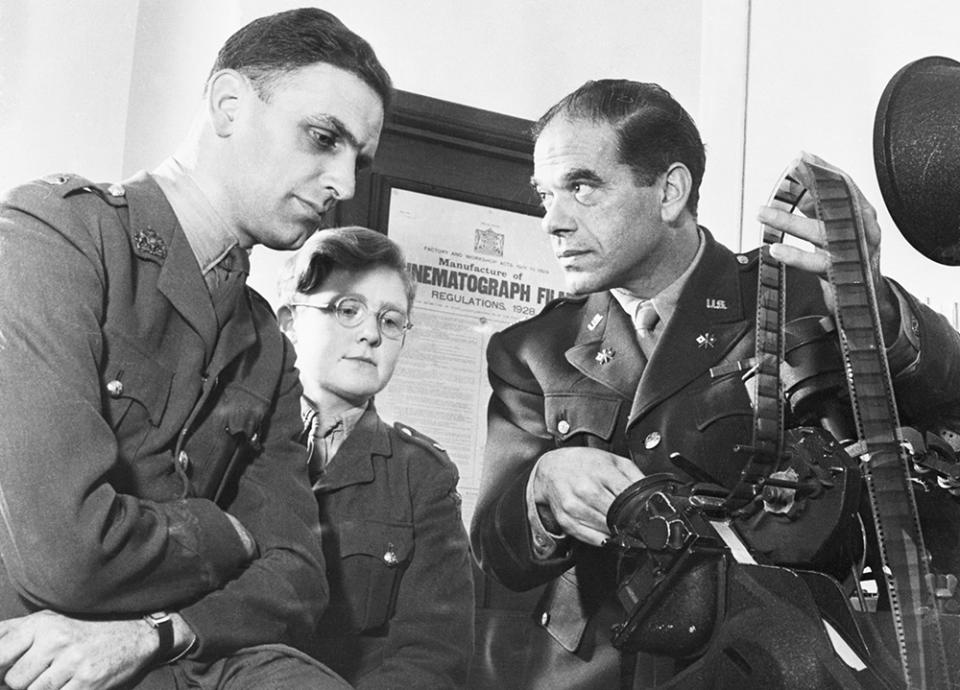
For John Ford and John Huston, the war's effects were subtler than the rest, but still had considerable impact on them and their films.
I think if you look at Ford's work, his turning to westerns after They Were Expendable, where for many years afterward he explored themes like the nobility of loss, and the sacrifice. Without drawing a heavy-handed line, his experiences during WWII, which were so much for him about the testing of personal courage and the witnessing of the courage of others, really resonates strongly in many of his post-war films. And you know, Huston was the youngest in Hollywood at the time of the war. He made two-and-a-half movies before the war, and four decades of movies after the war. I think in a number of his movies you see a kind of mistrust of institutions of authority and cynicism about powerful higher-ups, which I think were probably colored by the fact that he was constantly embattled. It was a struggle to get every single one of his war movies made the way he wanted to make it, and shown the way he wanted it to be shown.
Filmmakers today should look to those five old directors and see that everything they do affects their art, and not let cynicism seep into their work.
I think if there's a spiritual lesson for contemporary filmmakers-and I wouldn't presume to be giving contemporary filmmakers lessons-one thing that really struck me about these five guys is that everything you do as a director counts. There's nothing that doesn't count. I approached this story initially because I had discounted this whole period in their careers. I just saw it as an interruption in their filmmaking resumes, the time that they went off to war. Not only was it not an interruption, it profoundly shaped them as men and as artists.
I think if you're a serious filmmaker or a serious artist, everything you do comes from you, and everything you do goes back into you. If you're cynical about the work you do and you tell yourself that it doesn't count or it doesn't mean anything-this one's for the studio, this one's for the paycheck-I think that kind of seeps back into you eventually. Everything counts.
You Might Also Like

